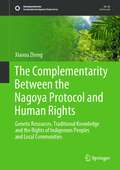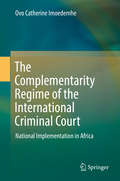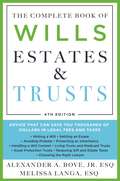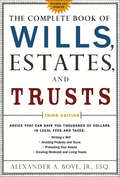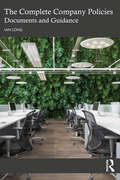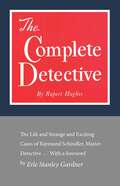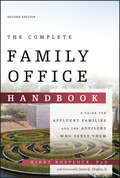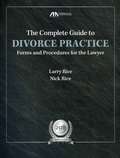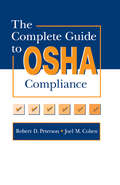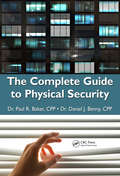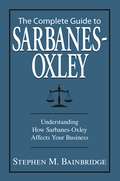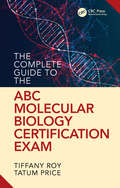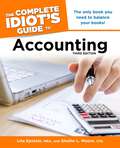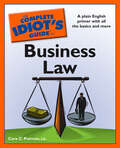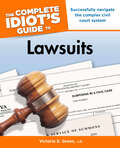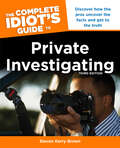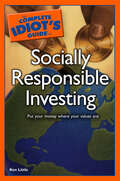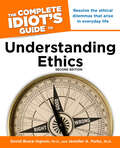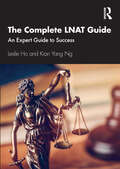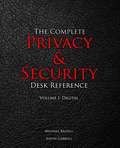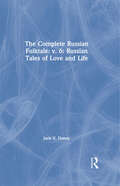- Table View
- List View
The Complementarity Between the Nagoya Protocol and Human Rights: Genetic Resources, Traditional Knowledge and the Rights of Indigenous Peoples and Local Communities (Sustainable Development Goals Series)
by Xiaoou ZhengThis book studies the questions of how and to what extent the Nagoya Protocol on Access and Benefit-Sharing (ABS) can be interpreted and implemented in light of international human rights law, with a sharpened focus on Indigenous Peoples and local communities. The complementarity thesis is built upon the understanding that ABS and human rights should not and cannot be isolated from one another in order to achieve their respective objectives. A mutually supportive approach to these two bodies of international law is articulated throughout the chapters, covering a wide range of international treaties and ‘soft’ instruments, as well as the practices of the United Nations, international treaty bodies, courts, other international organizations and sometimes NGOs. Legal researchers, legislators and policymakers, human rights practitioners and indeed anyone interested in the development of a more coherent and integrated system of international ABS framework will find this book helpful, with its succinct coverage of current ABS and human rights laws and practices, their pragmatic implications and possible ways of integration forward.
The Complementarity Regime of the International Criminal Court
by Ovo Catherine ImoedemheThis book analyses how the complementarity regime of the ICC's Rome Statute can be implemented in member states, specifically focusing on African states and Nigeria. Complementarity is the principle that outlines the primacy of national courts to prosecute a defendant unless a state is 'unwilling' or 'genuinely unable to act', assuming the crime is of a 'sufficient gravity' for the International Criminal Court (ICC). It is stipulated in the Rome Statute without a clear and comprehensive framework for how states can implement it. The book proposes such a framework and argues that a mutually inclusive interpretation and application of complementarity would increase domestic prosecutions and reduce self-referrals to the ICC. African states need to have an appropriate legal framework in place, implementing legislation and institutional capacity as well as credible judiciaries to investigate and prosecute international crimes. The mutually inclusive interpretation of the principle of complementarity would entail the ICC providing assistance to states in instituting this framework while being available to fill the gaps until such time as these states meet a defined threshold of institutional preparedness sufficient to acquire domestic prosecution. The minimum complementarity threshold includes proscribing the Rome Statute crimes in domestic criminal law and ensuring the institutional preparedness to conduct complementarity-based prosecution of international crimes. Furthermore, it assists the ICC in ensuring consistency in its interpretation of complementarity.
The Complete Book of Wills, Estates & Trusts (4th Edition): Advice That Can Save You Thousands of Dollars in Legal Fees and Taxes
by Alexander A. Bove Jr. Esq. Melissa Langa, Esq.The classic legal guide with more than 100,000 copies in print—now substantially updated and revised!Whether grappling with modest or extensive assets, The Complete Book of Wills, Estates & Trusts has long been the indispensable guide for protecting an estate for loved ones. In this completely revised fourth edition, updated to cover the latest changes in estate law, attorneys Alexander A. Bove, Jr., and Melissa Langa synthesize their decades of field and classroom experience into honest, clear, and entertaining explanations of a host of complex legal topics, including:• How to create a will and living trust• How to use a trust to avoid probate and legal complications• How trusts work and how to use trusts to save taxes• How to contest a will and how to avoid a contest• How to settle an estate or make a claim against one• How to establish a durable power of attorney• How to protect assets from creditorsIn their straightforward and humorous style, Bove and Langa share easy-to-understand legal definitions and savvy advice on everything from taxes to choosing the right attorney, all illustrated with entertaining examples and actual cases. This is the best and only legal guide readers will ever need to ensure that their money and holdings remain in the family.
The Complete Book of Wills, Estates, and Trusts: Advice that Can Save You Thousands of Dollars in Legal Fees and Taxes
by Alexander A. Bove Jr.The best legal guide to wills and estates—with more than 80,000 copies sold—now updated to cover the current asset protection options and estate laws.Whether grappling with modest or extensive assets, The Complete Book of Wills, Estates, and Trusts has long been the indispensable guide for protecting an estate for loved ones. In this completely revised third edition, updated to cover the latest changes in estate law, attorney Alexander A. Bove, Jr., clearly explainshow to use a will to avoid probate and legal complicationshow trusts work and how to use trusts to save taxeshow to contest a will and how to avoid a contesthow to settle an estate or make a claim against onehow to establish a durable power of attorneyhow to protect assets from creditorsIn his straightforward and humorous style, Bove shares easy-to-understand legal definitions, savvy advice on taxes, and pragmatic and simple sample forms, all illustrated with entertaining examples and actual cases. The Complete Book of Wills, Estates, and Trusts is the best guide available for defending your financial legacy.
The Complete Company Policies: Documents and Guidance
by Ian LongThis book is about a much neglected but essential element of the success of any business: company policy. This is a comprehensive guide to determining what policies your company needs, and how to draft and approve the relevant documents and implement them throughout the organization. From anti-bribery laws to data privacy and health and safety, your business is faced with a range of legal and regulatory obligations that must be identified and documented properly. These obligations must be addressed for internal and external stakeholders. The task of identifying and documenting effective policies is an essential step in establishing good corporate governance and ultimately a culture of compliance. These policies in turn provide a solid foundation for the reputation and commercial success of the organization, and form an essential "bridge" between the company’s strategy and the various procedures needed to carry it out. With many useful templates and practical examples, this book will help you to ensure the accuracy and completeness of your policy documents. It covers all areas of your business, including financial reporting, anti-money laundering, anti-fraud, conflicts of interest, data privacy and security, remote working, social media, whistleblowing, and more.This book will be useful to company directors, company secretaries and senior managers, and their advisers, including consultants, auditors, and solicitors. It will be particularly relevant to any business that needs to create or review their policies in light of current regulations and standards.
The Complete Detective: The Life and Strange and Exciting Cases of Raymond Schindler, Master Detective
by Rupert HughesTo anyone who has followed his career, Ray Schindler was the greatest detective of the mid-twentieth century. He was a pioneer in scientific detection before modern forensic science, and he handled more than 10,000 cases covering almost every crime recorded on the police blotter.Rupert Hughes acts as a faithful Dr. Watson to Schindler&’s Holmes, and guides us from case to case, watching a man who can&’t be excited, can&’t be stampeded , and can&’t be frightened; a man who matches ingenuity of crime with an even greater mental resourcefulness; a man who has a dogged determination and a big fighting heart.Ray Schindler&’s biography is the story of a great investigator, of a life that is packed with exciting adventures, and of criminals who are outwitted, out-fought, and defeated. Mere fictional detective stories pale in comparison to the real life drama inherent in every one of Ray Schindler&’s cases.
The Complete Family Office Handbook: A Guide for Affluent Families and the Advisors Who Serve Them (Bloomberg Financial Ser.)
by Kirby RosplockDiscover new insights on how to setup, manage, and advise wealthy families and their family offices The Complete Family Office: A Guide for Affluent Families and the Advisors Who Serve Them, 2nd Edition represents the newest update to an essential series. This book prepares the members of wealthy families to collectively manage, sustain, and grow their wealth across multiple generations. It also assists professionals who advise families to better serve their needs. This book teaches those who advise family offices and wealthy families on: · How to setup, structure, and advise a family office · Current compliance, fiduciary and risk management practices for a family office · Forward-thinking investment management, estate planning, and private trust company considerations · Fresh insights on philanthropy, legacy, and impact investing · Best practices to managing family wealth education and preparing next generation owners · New insights on family governance, strategic planning, and succession · Methods to create a family constitution, mission, and vision for families and their family offices. The Complete Family Office Handbook provides the most comprehensive, current research, practical guidance, and approaches from leading family offices from around the globe and illustrates, by way of practical case studies and examples, how families can effectively manage their wealth for the long term.
The Complete Guide to DIVORCE PRACTICE Forms and Procedures for the Lawyer Fourth Edition
by Larry Rice Nick RiceWhether you're just starting out or want to build up your document library, this proven system is a winning strategy for your family law practice. This complete divorce practice system can easily be customized to fit your jurisdiction and the way you handle cases, providing over 500 documents to efficiently take clients through every step of the divorce practice. This book is so easy to use. It is arranged in the natural order of the divorce experience. Starting with clients, it follows through the interview, proceeds through discovery, negotiations, mediation, trial and ends with prenuptial agreements.
The Complete Guide to OSHA Compliance
by Joel M. Cohen Robert D. PetersonThe Complete Guide to OSHA Compliance is an easy-to-understand, one-stop resource designed to help safety professionals, industrial hygienists, and human resources personnel ensure compliance with existing and upcoming OSHA regulations. This essential book explains employer and employee rights and responsibilities, and it provides everything you need to know about employer standards and standards for specific operations. The Complete Guide to OSHA Compliance describes the process of injury/illness recordkeeping and the reporting system required by OSHA. It also explains how to conduct a self-audit to determine whether a company is in full compliance. Furthermore, it informs companies of their rights in an inspection and explains how to handle citations and appeals, should they arise.
The Complete Guide to Physical Security
by Daniel J. Benny Paul R. BakerTo adequately protect an organization, physical security must go beyond the "gates, guns, and guards" mentality that characterizes most security programs. Creating a sound security plan involves understanding not only security requirements but also the dynamics of the marketplace, employee issues, and management goals. The Complete Guide to Physica
The Complete Guide to Planned Giving: Everything You Need to Know to Compete Successfully for Major Gifts
by Debra AshtonThis handbook explains how to set up and run a planned giving program, with emphasis on receiving large contributions from individuals.
The Complete Guide to Sarbanes-Oxley: Understanding How Sarbanes-Oxley Affects Your Business
by Stephen M. BainbridgeSOX requirements have brought about far-reaching changes for public corporations, private corporations, and nonprofits. Every manager and director should be aware of how the business landscape will be affected, and this is the book you need.
The Complete Guide to the ABC's Molecular Biology Certification Exam
by Tiffany RoyIn 2009, the National Academy of Sciences (NAS) authored the report Strengthening Forensic Science in the United States: A Path Forward. In it, the Committee expressed the need for accreditation and certification. Accreditation, long recognized by public labs as an important benchmark in quality, was recognized as an important way to standardize laboratories that provide forensic services. Certification can play an important role as a method of oversight in the forensic sciences—something also recommended by the - National Commission on Forensic Science in October 2014. The Complete Guide to the ABC's Molecular Biology is a professional certification examination preparation text for forensic scientists taking the American Board of Criminalistics Examination in Molecular Biology. The book serves as a resource for forensic scientists—who are facing more and more pressure to become certified—to support them in their pursuit of forensic certification. In the years since the NAS report was published, there has been increased discussion of forensic certification requirements. ABC’s Molecular Biology exam is a quality certification, and learning the concepts for it will invariably help any professional working in the field. The book prepares readers in all relevant topic areas, including: accreditation, safety, biological screen principles, anatomy and cell biology, crime scene and evidence handling, concepts in genetics, biochemistry, statistics, DNA evidence, and DNA testing. The book will be particularly helpful for forensic science laboratory technicians, police and investigations professionals, forensic serology and DNA analysts, attorneys, and forensic science students. This study guide follows the guidelines for the exam and presents all the information necessary to prepare individuals to pass the exam.
The Complete Idiot's Guide to Accounting, 3rd Edition: The Only Book You Need to Balance Your Books!
by Lita Epstein Shellie MooreThe art of accounting-by the numbers. The Complete Idiot's Guide® to Accounting, Third Edition takes the guess work out of this basic business activity. This updated edition has all the current information any business person will need to understand the "books," along with a useful workbook style appendix to re-enforce the lessons learned throughout the book. • Fully updated including all new forms • New workbook appendix with dozens of useful exercises • Up-to-date information on the changes in payroll taxes, including the new Medicare tax
The Complete Idiot's Guide to Business Law: A Plain English Primer with All the Basic and More
by Cara C. PutmanThe only guide of its kind! Undergraduate college students working toward business degrees, MBA graduate students, and first year law students have one thing in common: they need to take courses in business law. Unlike cumbersome and expensive textbooks, The Complete Idiot's Guide® to Business Law is the first and only series guide that explains the major principles, phrases, and real life implications of business law for students and interested professionals.• Discusses only relevant case laws to the topics• Fully explains key words, phrases, and concept• Contains clear and jargon-free explanations and definitions• Includes narrative examples to illustrate situations and concepts
The Complete Idiot's Guide to Lawsuits: Successfully Navigate the Complex Civil Court System
by Victoria E. GreenHave you been confused by a lawsuit? We can help. Millions of civil lawsuits are filed in the U.S. court system, costing billions of dollars in legal fees to those involved. The process is so complex that few people can pursue civil action without professional help, leaving them totally at a lawyer's mercy. Yet how many people truly know what they're getting into when they're involved in a lawsuit? The Complete Idiot's Guide® to Lawsuits clarifies the entire process in layman's terms. Expert litigator and law professor Victoria E. Green offers valuable insight into: • The pros and cons of filing lawsuits • How they begin and each party's response • Selecting and paying attorneys • Consequences of the settlement and appeals
The Complete Idiot's Guide to Private Investigating, Third Edition: Discover How the Pros Uncover the Facts and Get to the Truth
by Steven Kerry BrownThe mystique of private investigating draws significant numbers of people to consider it as a career or side business. At the same time, individuals want to learn investigative techniques to solve their own personal and legal problems. In The Complete Idiot's Guide® to Private Investigating, Third Edition, private investigator and former FBI agent Steven Kerry Brown shares his hard-won expertise on everything you need to know to track down people and information, including: Tapping phones and recording conversations. Interviewing and interrogating to get important information. Tricky but legal ways to get needed evidence like the pros. Performing onsite, online, and mobile surveillance without being detected. Skip tracing to find lost loves or people who owe money. Investigating backgrounds of potential employees or spouses. Searching public records online and at the courthouse. Catching a cheating spouse and gathering evidence for divorce cases. Finding runaway teenagers. Doing diligent searches connected with adoptions and estates. Tracking down burglars, thieves, pickpockets, and purse snatchers. Advanced techniques and business advice for those interested in starting their own investigative or background screening agency. Along the way, Brown shares fascinating stories from his cases that highlight his clever methods for tracking down evidence and helping his clients find out what they need to know.
The Complete Idiot's Guide to Socially Responsible Investing
by Ken LittleToday's hottest investing trend. More than ever, people want their money investments to reflect their personal or political leanings. But how do they find out which companies are "socially responsible?" Do these "green" investments perform as well as traditional investments? How can they protect themselves from mutual funds or 401Ks that are managed without the future in mind? All these questions and more are answered by an international expert who founded the SRI World Group, one of the largest information services on SRI. Includes detailed information about SRI, its history and where it's headed Explains the criteria used to evaluate a company's level of social responsibility Compares performance of SRI to traditional investments
The Complete Idiot's Guide to Understanding Ethics, 2nd Edition: Resolve the Ethical Dilemmas That Arise in Everyday Life
by David Ingram Jennifer A. ParksEthics are more than a personal philosophyFrom the crimes of Bernie Madoff to the accusations of war crimes and torture to the massive greed-inspired fraud perpetrated by the financial institutions around the world, this new edition of The Complete Idiot's Guide® to Understanding Ethics, Second Edition, helps clarify the history and evolution of ethics and their application to real life in the twenty-first century. • Covers ethics in such hot button topics as politics, war, medicine, and business and finance • Features up–to–date ideas on ethical behavior on the Internet when dealing with privacy issues • Discusses the personal ethics surrounding reproductive issues
The Complete Infidel's Guide to Free Speech (Complete Infidel's Guides)
by Robert Spencer"JUST STAY QUIET AND YOU'LL BE OKAY."That's what Mohamed Atta told the doomed airline passengers on 9/11. And we still hear the exact same message today from the powerful but shadowy lobby that is working behind the scenes to gut the First Amendment and prohibit "hate speech"—or any criticism—of Islam. As bestselling author Robert Spencer shows in his startling new book, The Complete Infidel's Guide to Free Speech (and Its Enemies), aggressive Muslims and their appeasers have mounted a dangerous and disturbingly successful campaign against our constitutional rights. Spencer reveals: How social media behemoths Facebook and Twitter—not to mention student groups at American college campuses—are doing the bidding of anti-First Amendment Muslim activists Why core Islamic teachings make criticism of Islam punishable by death How American representatives at the United Nations have already agreed to limit freedom of speech How Curt Schilling and other outspoken conservatives have lost their jobs for criticizing Islam Why Twitter and Facebook now regularly censor speech critical of Islam—while allowing death threats against its critics How blasphemy laws in Muslim countries are used as a pretext for arresting, even lynching Christians How European "hate speech" laws are used to prosecute and harass critics of Islam Why appeasement of Islam is endangering our First Amendment freedoms and could lead to your prosecution for "hate speech" If you value your First Amendment rights, you owe it to yourself to read The Complete Infidel's Guide to Free Speech (and Its Enemies). It will give you the information and tools you need to fight back—because Islam and its progressive fellow travelers have only begun their campaign to define what you can read, say, and think.
The Complete LNAT Guide: An Expert Guide to Success
by Leslie Ho Kian Yang NgThis is a complete and comprehensive guide for applicants sitting the National Admissions Test for Law (LNAT) examination. As a one-stop solution to performing well in the LNAT, this guide comes with tips, strategies, full practice papers, and answers with detailed explanations. Compiled by a team of LNAT mentors, consultants, and coaches with input from admissions officers, this book offers the most comprehensive and accurate practice papers available. The papers were vetted by Oxford and Cambridge graduates with personal experience of the examination, and are set to a standard of difficulty that is on a par with the actual LNAT. This provides students with a thorough and accurate simulation of the questions they will face. The Complete LNAT Guide: An Expert Guide to Success is an essential book for all applicants preparing to sit the LNAT examination.
The Complete Landlord & Property Manager's
by Diana Brodman SummersThe Most Up-To-Date LEGAL INFORMATION for Landlords and Property Managers Understanding your rights and responsibilities under Illinois landlord/tenant law is essential to becoming a successful and profitable landlord. CompleteLandlord and Property Manager's Legal SurvivalKitgives you everything you need to protect yourself and your property while earning the money you want. LEARN HOW TO:• Effectively screen prospective tenants• Manage rent payments and security deposits• Enforce your lease• Prevent problems with your tenants before they ariseReady-to-Go forms with Step-by-Step InstructionsESSENTIAL DOCUMENTSYOU NEED TO:? Evaluate and find the right tenant? Comply with current state and federal regulations? Legally evict a problem tenant? Recover damages and get paid? And much more. . .
The Complete Personal Legal Guide
by American Bar AssociationA must-have for every household, The American Bar Association Complete Home Legal Guide is the go-to legal reference for every home. This completely revised and updated edition now includes easy-to-digest, comprehensive legal information every household needs. In addition to tips on real estate, healthcare, home ownership, retirement and much more, there are new useful charts and graphs, insightful personal stories, and a new chapter on the growing specialty of 'disabled' or 'special needs' law that will be helpful to an even larger audience.
The Complete Privacy Security Desk Reference: Volume One: Digital
by Michael Bazzell Justin CarrollThis textbook, at nearly 500 pages, will explain how to become digitally invisible. You will make all of your communications private, data encrypted, internet connections anonymous, computers hardened, identity guarded, purchases secret, accounts secured, devices locked, and home address hidden. You will remove all personal information from public view and will reclaim your right to privacy. You will no longer give away your intimate details and you will take yourself out of 'the system'. You will use covert aliases and misinformation to eliminate current and future threats toward your privacy & security. When taken to the extreme, you will be impossible to compromise.
The Complete Russian Folktale: v. 6: Russian Tales of Love and Life
by Jack V. Haney"The Complete Russian Folktale" makes available to English readers a rich folk tradition that has not been easily accessible or well known in the West. Compared to other European traditions, the East Slavs have an extremely large number of tale types. Using the Russian version of the Aarne-Thompson index to folktale types, and drawing on both archival and written sources dating back to the early sixteenth century, J.V. Haney has assembled and translated examples of the full range of tales. Nearly all of these tales will appear here in translation for the first time. Volume 6 presents tales classified 850-999, which describe the travails of young people who are seeking happiness and love. They portray acts of fate, prophecy, and even divine justice, in a village context of social misery, folk tradition, the aggravations of family life, and the heartaches of the lovelorn. J.V. Haney's extensive introduction and annotations explain the structure of the tales, their place in the A-T system and in folklore studies, and the specifics of their Russian provenance.
